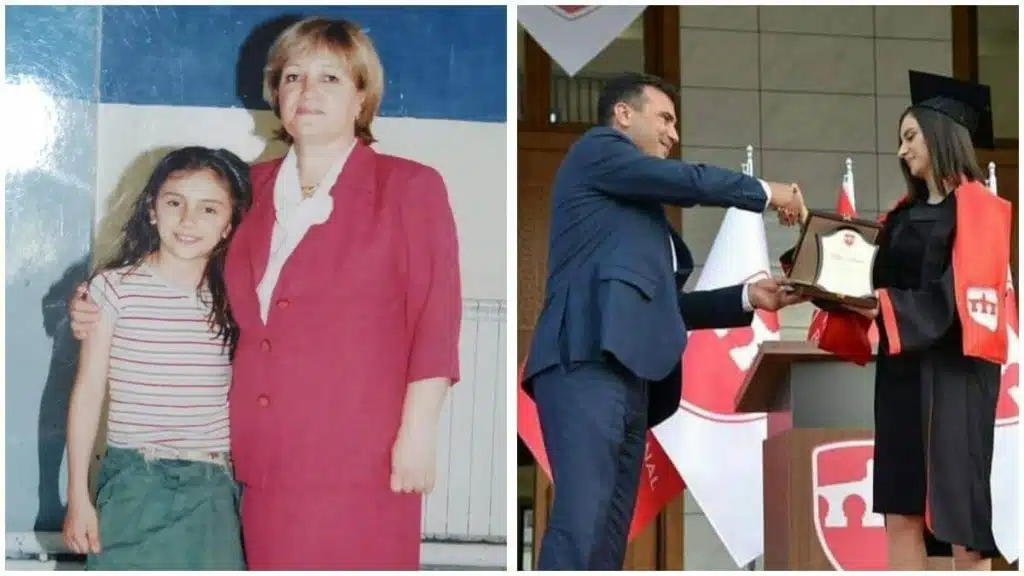A Real-Life Example of Bilingualism by a Multilingual Psychologist


Raising kids to speak more than one language can be a head-scratcher for parents. Are you one of them? We sat down with a psychologist, “Nefise Shaban Dogrusozlu,” who knows this journey firsthand, juggling different languages while growing up. This chat isn’t just tips from a textbook; it’s wisdom straight from someone who’s lived it.
Have you ever wondered how speaking multiple languages shapes who your kid becomes? Or worried about them getting confused? This interview dives into these questions and more. So, settle in. You’re about to get some real talk on the highs and lows of bringing up a bilingual child.
I grew up in an environment where I heard several languages outside the world. I was speaking a different language at home, different at school, and another language on the streets when we were talking with my friends. I was exposed to at least three to four languages. I think, from a psychologist’s perspective, it also affects a child’s identity in several ways. For example, the child may be confused about which culture or group they really belong to.
To feel a sense of belongingness is one of our most basic needs. For some children, this will be just a phase they will pass through. However, others may carry this identity confusion and may feel like they never truly have this feeling of belonging throughout their lives. This can affect their relationships, well-being and careers in their adult lives.

Growing up with multiple languages was a unique and enriching experience, but it did come with its fair share of challenges. The ability to speak multiple languages fluently is valuable, but it also presented some notable difficulties during my upbringing.
In social situations, I faced peer pressure to conform to a particular language my friends or classmates speak. This sometimes led to a feeling of exclusion when I couldn’t fully participate in conversations conducted in a language I wasn’t proficient in.
Another big challenge for me was navigating the art of code-switching, which is the ability to switch between languages depending on the context. It required constant vigilance to ensure I was using the appropriate language in various situations, whether it was with family, friends, or in a formal setting. This mental juggling could be exhausting at times.
First of all, speaking several languages requires more brain activity. Because of this, I think it positively influenced my overall cognitive abilities. Being multilingual made me better at problem-solving, objectivity, critical and logical thinking.
Speaking multiple languages made me a flexible person. I learned not to judge anyone, to respect different perspectives and beliefs, and to be more open-minded. I adapt to new situations and environments more readily. I don’t experience cultural shocks.
Learning and maintaining multiple languages requires strong memory skills. Over time, this has translated into improved memory and learning abilities in various domains, such as academics and professional development. My memorization is perfect at the moment.
Being multilingual has opened doors to career opportunities that might have otherwise been inaccessible. Speaking more than one language is always an advantage in your career. I was able to travel to many countries with no anxiety because speaking many languages always made me feel safer. For instance, I could easily find someone I can communicate with in case I need an address.
Multilingualism boosted my self-confidence by providing me with a sense of mental agility and competence. Both socially and academically, I was feeling more competent and confident. In my university, there were people from different cultures, and I could speak their languages. People usually hang out with their cultural group, but if you know their languages, you can feel close and communicate with all of them. As a result, I would feel more social, making me feel more confident.
Understandably, parents may have concerns about raising bilingual or multilingual children, but research and experience show that the benefits of exposing children to multiple languages far outweigh any potential challenges.
Language delay and confusion is a common side effect of multilingualism. But this is only seen in the short term. In the long term, it has more benefits, such as improved cognitive skills, career opportunities, self-confidence, etc.
In order to minimize the risks of language delay and identity confusion—potential pitfalls associated with multilingualism—you should link particular languages with distinct situations or individuals. For example, one language for reading books, one for TV, one for school, one for a specific family member and so on.
Confusion and language delays can occur when a parent converses with a child in multiple languages or exposes them to cartoons and books in several languages.
Research suggests that language acquisition is most effective during the early years. Therefore, starting as early as you can is always a plus. Be patient and avoid pressure; side effects such as confusion and language delay are only seen in a short-term period. Using the “one person, one language” approach is very effective.
The association of a language with a specific person or situation is the healthiest way for multilingualism. Children do not have abstract thinking. Therefore, including concrete objects and games while teaching a new language is essential.
Yes, bilingual children may encounter some common challenges and issues as they navigate growing up in a multilingual environment.
Bilingual children may sometimes mix languages in a single sentence or conversation (code-switching). To minimize this side effect, Encourage them to use each language separately and gently correct code-switching when necessary.
Compared to monolingual peers, multilingual children may have a smaller vocabulary in each language. Be patient because this will be only in a short period. Avoid comparing your child’s language skills to others, as this can increase children’s anxiety and speech delay.
Some children may prefer one language to another. If you include creative activities, games or social groups, they may also be interested in the other language.
Multilingual children may need to switch languages when interacting with monolingual friends, which can lead to moments of confusion. Teach your child strategies for explaining their bilingualism to friends and how to handle language switches politely. Encourage them to share the joys of knowing multiple languages with their friends.
In wrapping up this enlightening interview with psychologist Nefise Shaban Dogrusozlu, we delve deep into the tapestry of multilingual upbringing. Far from just academic observations, these insights emanate from a lived experience that’s both rich and complex. Navigating multiple languages while growing up may present challenges such as identity confusion, peer pressure, and even initial language delays. Yet, the overwhelming message remains optimistic.
Unquestionably, the benefits—improved cognitive skills, career opportunities, and a sense of global belonging—transcend the hurdles. For parents grappling with the decision to raise multilingual kids, Dogrusozlu’s advice offers a comforting reassurance. Starting early, contextualizing each language, and implementing playful, concrete teaching methods can alleviate common pitfalls. Remember that multilingualism isn’t a hurdle but unfurls as an enriching journey. A journey that equips our children with tools far more valuable than mere words: empathy, adaptability, and an empowered worldview.